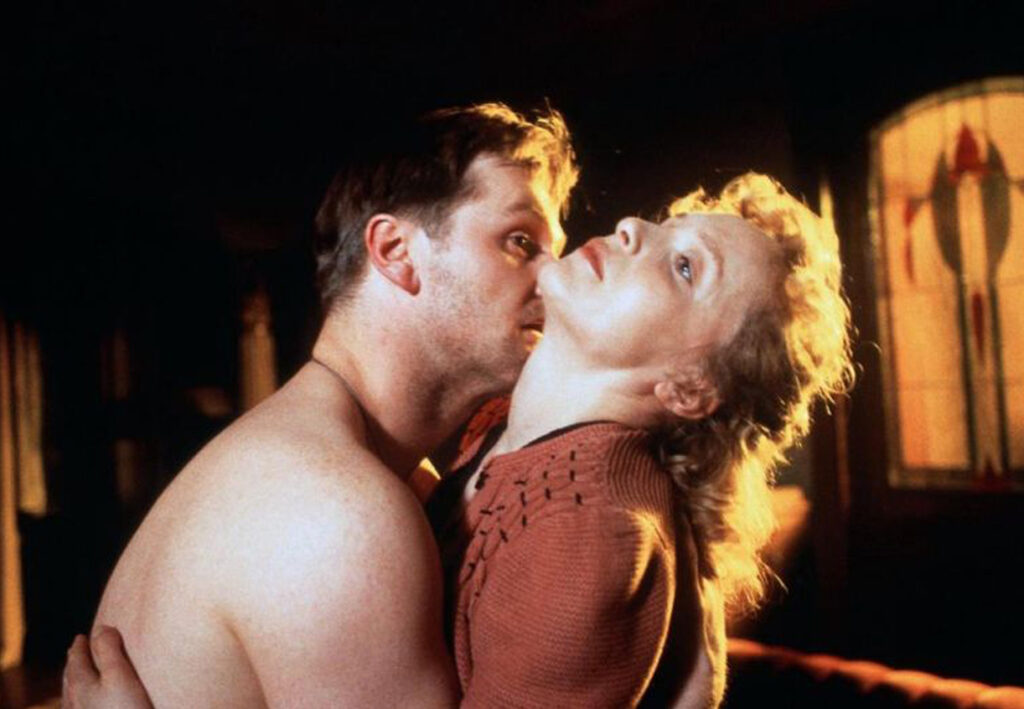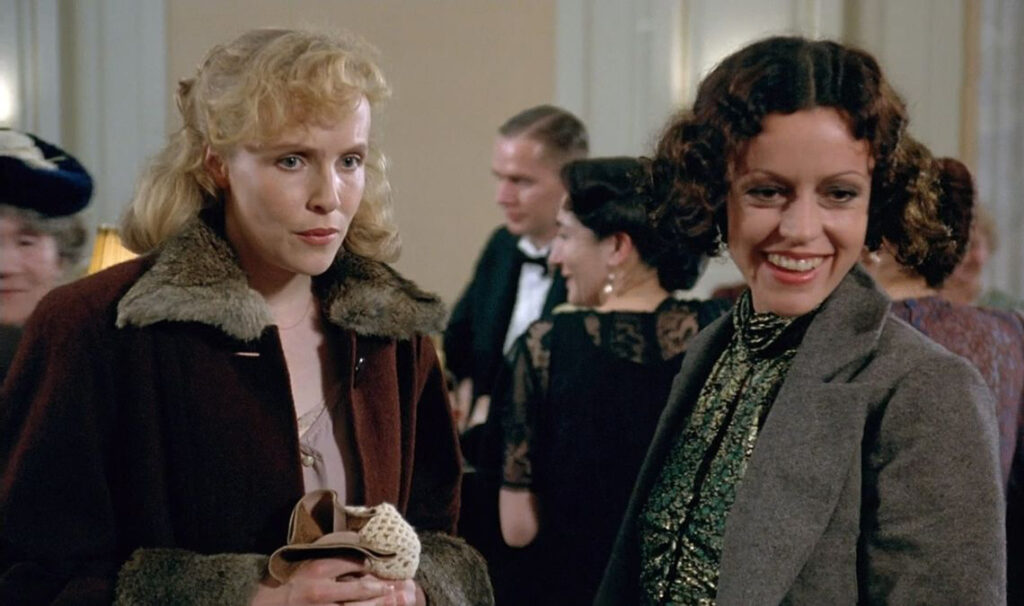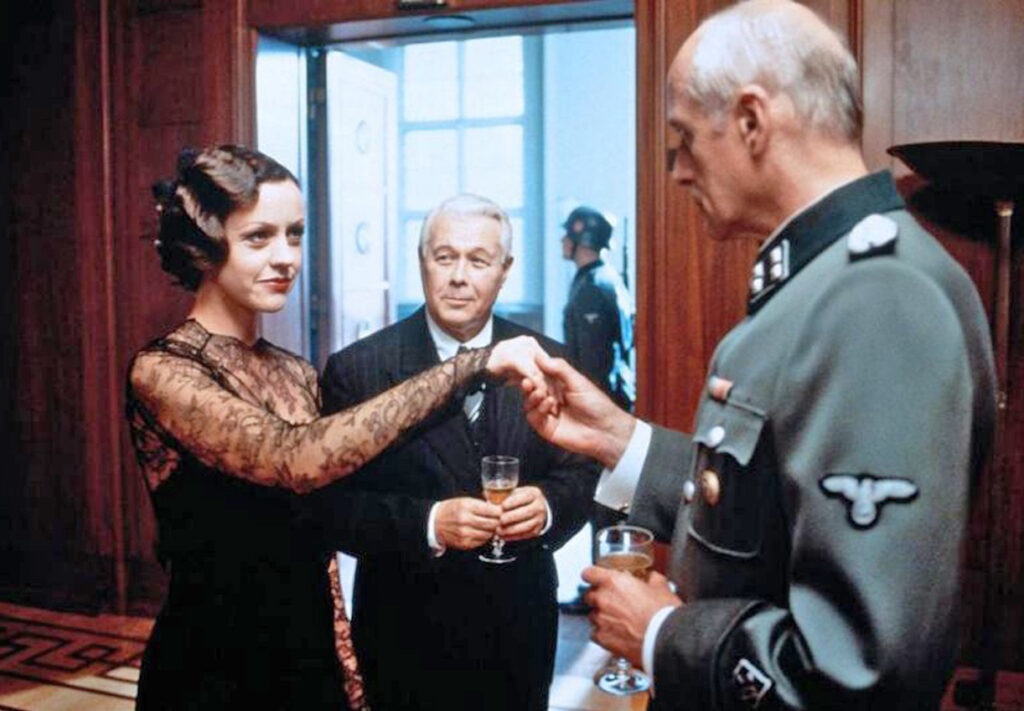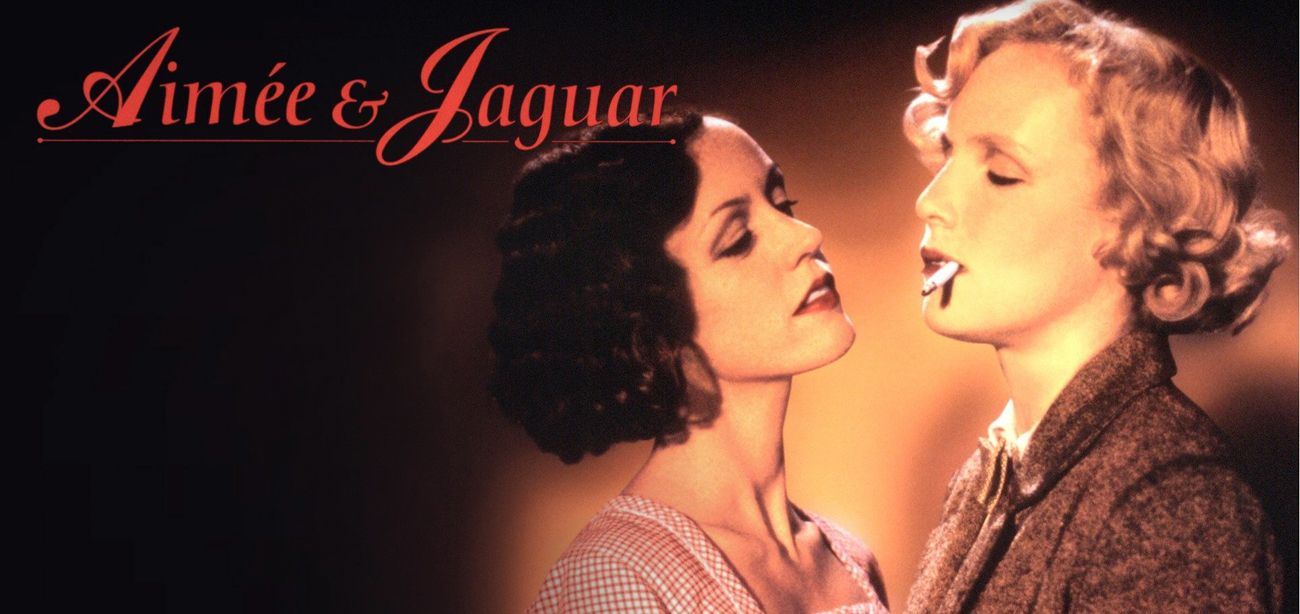With all the problems in the world, sometimes it’s nice to relax with a simple light-hearted movie. Like Aimée & Jaguar. Nothing challenging or tragic here. It’s just a nice lesbian love story… That takes place in Nazi Germany. And one of them is Jewish. And the other one is married to a Nazi officer. Just simple, uplifting content.

Aimée & Jaguar is the love story between Felice, a Jewish lesbian in the resistance movement and Lilly, the wife of a Nazi officer. At the start of the film, Felice is living her best gay, bohemian life despite the surrounding unrest. She has a friends with benefits named Ilse. Upon first introduction, Felice flagrantly flirts with Lilly while Lilly tries her hand at affairs with other men. Eventually, Lilly accepts Felice’s overtures and finds the happiness she’d been missing. But Lilly’s husband discovers this affair. This puts Felice’s resistance movement at risk. Eventually, Felice chooses love over safety and returns to Lilly. Decades later, the elderly Lilly and Ilse meet and discuss their love for Felice and Felice’s love for Lilly.
The last few minutes of the film featuring an elderly Lilly and Ilse really stick the landing for Aimée & Jaguar. Obviously, this World War 2 lesbian love story is tragic. The most likely end to the film is a down note. But instead of ending on death, Aimée & Jaguar ends with life. Lilly and Ilse survived their experiences. They also keep Felice’s memory alive. The depiction of reconciliation between the two women is moving. Despite all the tragedy and the advanced age of the two characters, the scene is about moving forward and hope for the future.

Also admirable is Aimée & Jaguar’s take on sexuality. The film premiered in 1999. That’s a time period when a lot of queer films felt it necessary to “explain” homosexuality to its audience. Not here! Within ten minutes, Felice is here, queer and on a date with another woman. Even Lilly doesn’t have a broad coming out narrative. There’s no internal agony and monologues about her sexual confusion. Once she accepts Felice’s flirtation, she’s good to go. Realistically, sexuality is a simple concept and one easy to express visually. Lots of films until recently like to over-explain it. I respect Aimée & Jaguar for not doing so.
I also respect the film for not isolating Lilly and Felice from the broader, queer movement. This isn’t an isolated love story. Felice especially is engaged within the queer community at large. The film depicts this community and the joy it can bring as well as the fear they live with every day. When Lilly chooses Felice, she is excited to belong to the community though it also comes with a major safety concern. Despite that concern, being openly queer in the film represents freedom and joy, even as the world at large is so relentlessly awful.

Admittedly, beyond the queer element, Aimée & Jaguar feels like a pretty standard awards-bait World War 2 film. Lots of the choices in direction, story and of course, overall setting feel pretty common. World War 2 is a very common choice of setting for awards-bait dramas. Still, there are worse things than being awards-bait. Director Max Färberböck knows how to shoot a movie and was given the budget to do so. The queer element of the script sets this film apart from other awards-bait WW2 dramas even if the directorial choices are pretty standard. Aimée & Jaguar doesn’t reinvent the wheel; it just makes the wheel gay.
Aimée & Jaguar is a good film. Obviously, its subject matter skews into heavy tragedy. But the film is great at celebrating life and freedom instead of focusing on the lack of such things. This is a very competently made World War 2 romance. It made great choices about how to tell this powerful, tragic romance with an element of hope.
Overall rating: 8.8/10
Other WLW films in similar genres
Tragedy, but make it hopeful?


Be First to Comment